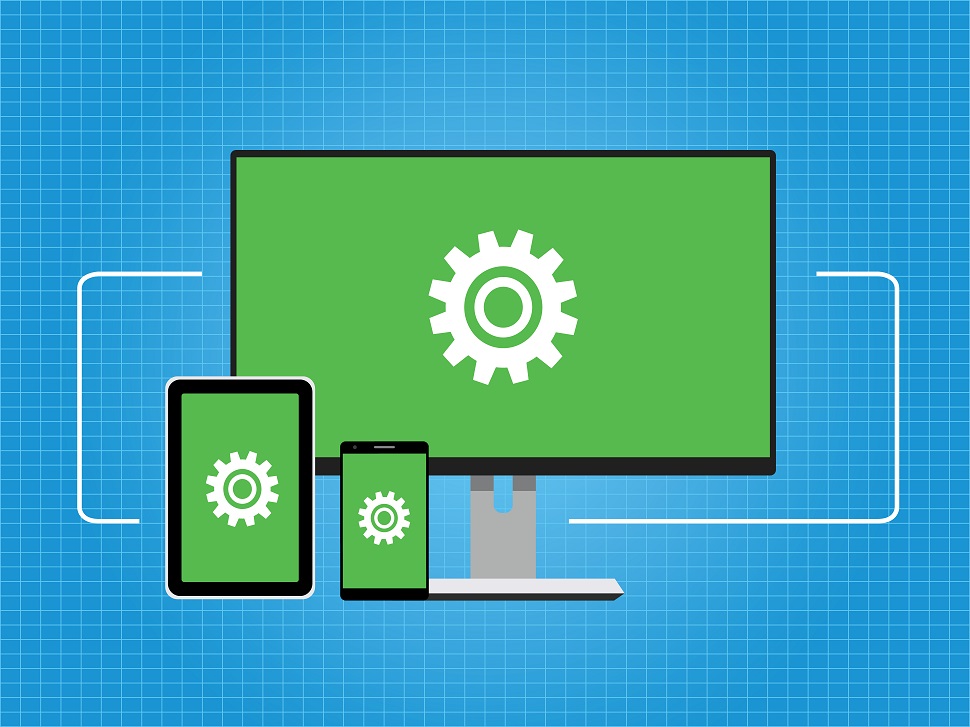Introduction:
In a world where almost everyone owns a mobile device, it is necessary to have a mobile app. Any business that wants visibility and power over the market needs an app.
Today, 99.6% of smartphones run on either Android or IOS. A business has to decide between developing a native mobile app or cross-platform app. A good mobile app development firm can help them reach this decision by analyzing their needs.

The debate between investing in cross-platform or Native apps is growing. Thus, in this blog, we will earn the meaning of both these terms and also their pros and cons. This will definitely help a business to reach a decision about investing in either one.
Another important thing that we will learn in this blog is the top native and cross-platform mobile app development tools . There are end numbers of tools available in the market. But which tool is the best and what features it provides are not known to many. Thus, we have made a list of 4 top developing tools for both native and cross-platform app.
Cross Platform vs. mobile native app development
Native Mobile App:
The apps that you witness first when you open your mobile devices like calendar, clock and so on are Native apps. These apps meet the requirements of a single operating system by using its SDK and hardware memory. Some apps that are specific to one platform like Facetime for Apple and Google Duo for Android are an example of Native apps specific to a platform.
Native apps are designed for a particular device. Thus, they have full access to the device’s camera, contact list, Bluetooth and so on.
Cross-Platform App
A cross-platform mobile application is an app that can run on multiple operating systems. It is compatible with IOS, Android and Windows and so on. Thus, these apps can run on any smartphones and tablets. Pinterest, Paypal, Paytm and so on are cross-platform app.
Cross-platform apps can be native too-
Native cross-platform apps: Now some business wants their app for both IOS and Android. But they want them to be built as native apps. For such apps, a developer uses the SDK of the OS and creates a unified API. This runs on top of the native software development kit and uses the same codebase for both Android and IOS apps. The popular native cross-platform mobile app development tools are Xamarin and Appcelerator Titanium.
Pros and Cons
Now, let’s learn the advantages of both Native Mobile and cross-platform app development.
Native App

Pros:
1.They are speedy: Since they are native to the platform, they load quickly. These apps inlay use web to fetch the data from the user instead of whole application. Thus, they load quickly and are speedy.
2.They can work offline: Native apps don’t require internet connections. So, if you are stuck in a place with no or limited connectivity, make use of these apps.
Cons:
1.The downloading process is lengthy: They can only be used after downloading and installing them from the App store. This takes up a lot of time which may lose the users.
2.Expensive and no flexibility: For native app development, the business has to hire separate teams. As it requires platform-specific coding. So, for IOS you will need another developer and for Android another. The developer can’t use the same code for both. This means no flexibility and an expensive development.
Cross-Platform App Development
Pros1.Developing Cross-Platform app takes less time: With proper tech stack and knowledge, the developer can reuse the same code base. This means a small amount of similar code can be used for both IOS and Android. This makes the developing time of the app shorter.
2.Less expensive and more user base: A single developer can make use of cross-platform app development tools to create this for multiple platforms. This means less investment and more revenue. Also, these apps run on IOS, Android, and Windows and so on, thus they are exposed to large no. of users.
Cons
1.They are heavy: They use HTML5/ CSS UI components which make them heavy. As they take up lot of GPU/CPU resources. This makes their performance weak as they load slowly and may close abruptly or may hang.
2.UX issues: Every operating system has different guidelines for UI. If you don’t follow that in your cross-platform app, it might get rejected.Mobile app development tools for Native and Cross-platform app
Native Mobile App Development
Here are the most famous native app development tools:
1.Fastlane
For automating a task, Fastlane is the best choice. It helps you set a list of actions which lets anyone from the team use the console to run these tasks. Its CI is a very handy tool which lets you perform a task and deploy it from there only.
2.CocoaPods:
The popular app development tool for IOS is CocoPods. This development tool aids in fetching external dependencies. These dependencies are integrated into the project afterwards.
3.Screenhero:
This tool helps in pair programming even when you are remote. It also lets the developer share screen with another person. This lets you control it with the help of two cursors and keywords.
4.Zeplin:
An app requires both designing and developing. With this tool, designers can share their designs and developers can explore them.
5.Appcelerator
It is the best native app development tool. It uses JavaScript to create native codes and offers above 5000 APIs. It supports IOS, Android, Blackberry, Windows and HTML5. It is rich in features.
Cross-Platform app development
Here are the most popular cross-platform mobile app development tools:
1.Unity
Unity is one of the most famous cross-platform mobile app development tools. It is the best game development tool that can be used for 3D/2D games. Even AR/VR apps can be created using this tool.
The price of Unity is $75 per month.
2.Xamarin
Xamarin Software Company is owned by Microsoft. It has a C# codebase, which aids the developers in creating apps for Android, iOS, and Windows. It lets developer share code within which aids in cross-platform app development. It also has the feature of cloud service that makes testing end number of devices easier.
Xamarin costs $25 to $158 per month.
3.BuildFire
It is a high performance cross-platform mobile app development tool. It supports apps for IOS, Android, and Tablets. It has some pre-built functionality that shortens the developing time of any app. These features are- 45 plugins, pre-existing templates, and direct integration to segment, smooch and so on.If you use this for just building the app, it’s free. But for launching the app too it is $20 per app/month.
4.Apache Cordova
Apache Cordova tops the list of best cross-platform mobile app development tools. It lets the developer use a single code to make apps for multiple platforms. The OS supported by this are- Firefox, IOS, Android, Windows, Blueberry, LGWeb OS and FireOS. It uses HTML and Javascript to write the codes. The best part about this tool is that it is free and open source.
5.Corona Labs
Corona Labs can create apps for most major OS that also includes Android, iOS, and Windows. This is best suited for creating 2D graphics games and educational apps . But you can use this for building other 2D apps too.
It has a free version and the paid version’s cost is $70-$199 per month.
These were some of the best Native and Cross-Platform Mobile App development tools. Every one of them has their own unique features. The decision to use anyone of them resides on the app’s needs and budget.
Cross platform vs. native mobile app- How to choose between them?
It is very difficult for a business to decide between going for a Native app or cross-platform mobile app development
Some of the factors that should be considered are:
• The features you would be interested in to include in your app.
• For mobile apps that will become an independent business like Healthcare in the future, Native Apps are best. While• For an app whose intention is information or content distribution, Cross-Platform development is best.
So, in the end, the decision has to be made by the business owner only. Native Mobile Apps are faster and work online while Cross-Platform apps work on multiple platforms. Keeping this in mind and the tools available at your disposal, app needs, user needs, and budget, make a decision.
Conclusion
In this blog, we covered the cons and pros of both Native Mobile and Cross-Platform Apps. We also learned the best available Native and Cross-platform mobile app development tools. Hopefully, all this data will help you to decide between investing in any one of these.
Ajay Goyal is a co-founder & Director of Endive Software. As a technology enthusiast, he always likes to learn more about new technologies and share useful information to the team. The mobile app development team follows his idea to build impressive and useful mobile apps.


